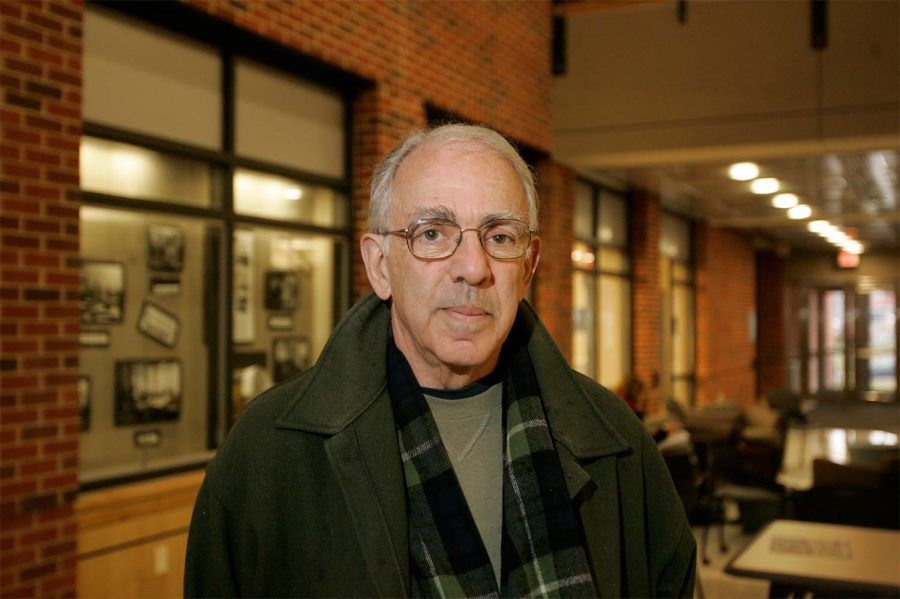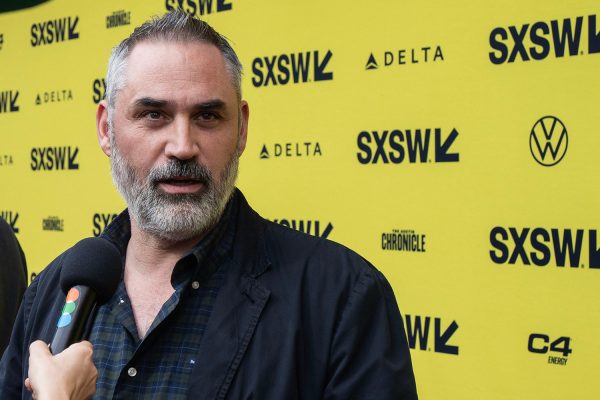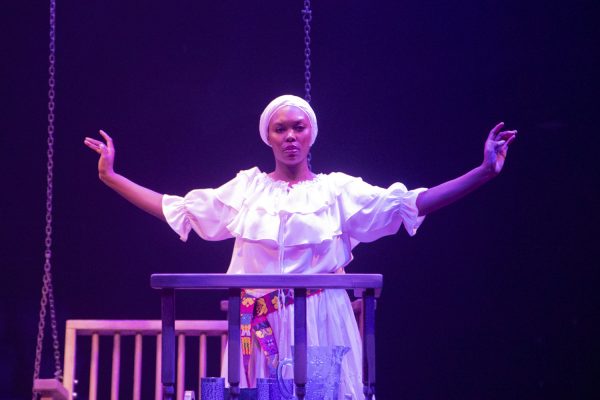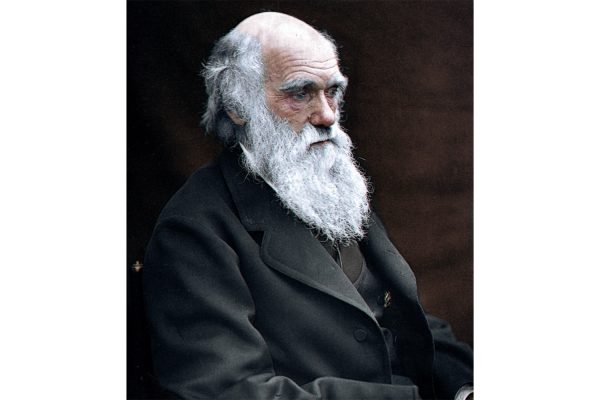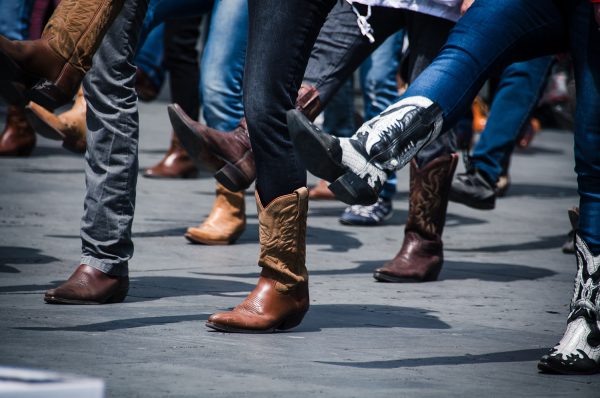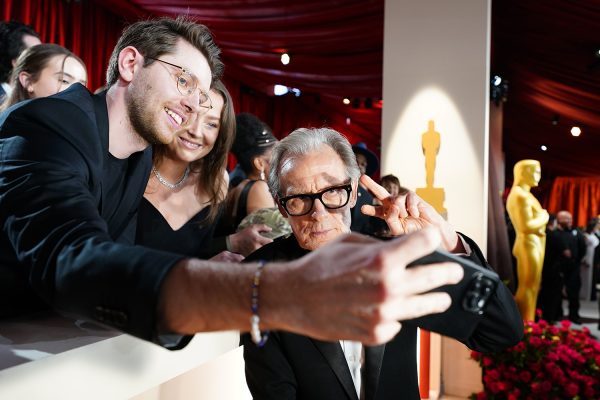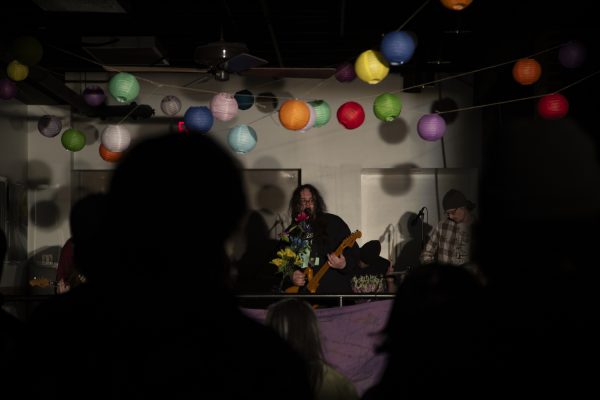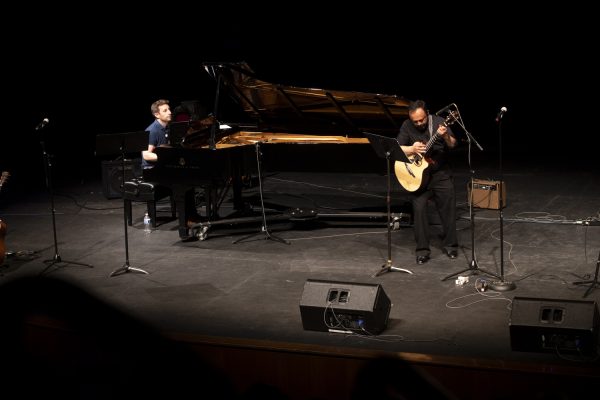Carl H. Klaus leaves legacy at the UI, Nonfiction Writing Program
Through his work as an author, professor, and friend, Carl H. Klaus changed the writing community on both local and national levels.
Iowa Nonfiction Writing Program founder Carl Klaus stands inside Adler Journalism Building Monday, March 27, 2006. Klaus, the founder of the University of Iowa’s Nonfiction Writing Program, died in February 2022 and will be honored through a new garden.
February 15, 2022
As a freshman at the University of Iowa, Michele Hinz wanted a challenge.
She had passed out of her first-year literature course requirements through a series of classes and tests, and requested that she be enrolled in UI Professor Carl H. Klaus’ class called the English Semester. The 12-hour course was taught by three professors.
Klaus said no.
Hinz refused to accept his answer. Asking again and again for permission to enroll, she eventually changed Klaus’ mind. Years later, he became her thesis director in graduate school, and the two stayed in contact until Klaus’ death on Feb. 1 at 89 years old.
Hinz is just one example of the immense impact Klaus had on the people and communities around him through his work as a professor, author, and friend. Regarding Klaus’ work as a professor, Hinz said his work influenced her practices as a writing and literature professor at Kirkwood Community College in Iowa City.
“There have to be thousands of us who’ve been teaching, who have those anthologies on our shelves, because those are the essays we learned on, that we learned to love nonfiction with,” Hinz said. “Those are the essays that he taught from.”
Klaus’ work as a professor is still seen both on campus at the UI and on a national level. Along with writing textbooks that are widely regarded and used, Klaus pioneered one of the UI’s most recognized areas of study — the Nonfiction Writing Program.
John D’Agata, current faculty member with the Nonfiction Writing Program, called Klaus’ work revolutionary. He said Klaus transformed the world of literature by giving the space for nonfiction writers to grow and thrive in their selected styles of writing
“In the mid-1970s, when ‘nonfiction’ was barely yet in use as a literary term, Carl was helping to found the NWP, which would become a creative writing program exclusively committed to exploring the historical depth and the cultural range of nonfiction,” D’Agata wrote in an email to The Daily Iowan. “He was literally decades ahead of his time.”
D’Agata wrote that, before the creation of the Nonfiction Writing Program, students who wanted to study nonfiction writing in graduate school had to attempt to practice their discipline by enrolling in the fiction or poetry department.
RELATED: Ask the Author – Carl H. Klaus
Klaus’ work within Iowa City’s literary community had a rippling impact on the world of writing. Every student who has engaged with the UI’s Nonfiction Writing Program over the past 45 years has been either directly or indirectly influenced by Klaus.
“His influence has since spread around the U.S. and the world, now that his former students are themselves teaching all over the map, running publishing houses, hosting radio programs, making documentary films, writing bestseller and MacArthur-winning books,” D’Agata wrote.
Outside of his work in the educational field, Klaus was also an accomplished author. Best known for his journals, Klaus would take a specific subject that related to his life, expand on what it meant, and give it an applicable meaning.
John Kenyon, executive director of the Iowa City UNESCO City of Literature, said even if the reader was not familiar with the subject that Klaus was writing on, the work itself still held significant meaning.
“It’s the sort of writing style that you’ll read what he puts down on the page, maybe because you’re interested in it, but also just because you’re interested in what he has to say about it, which aren’t always necessarily one of the same,” Kenyon said.
Kenyon attested to Klaus’ skill, as well as his ability to support his peers in the writing community. Acting as both an instructor and independent creator, Klaus certainly contributed to the impressive intellectual culture that Iowa City holds.
“People like that, who you just sort of took for granted as these incredibly smart, incredibly talented people that are here among us — it’s part of the reason why this is such a special place,” Kenyon said. “When people like that pass on, it definitely leaves a hole that will be felt for a while.”
Editor’s note: A previous version of this article incorrectly listed Klaus’ age as 98. He was 89.



